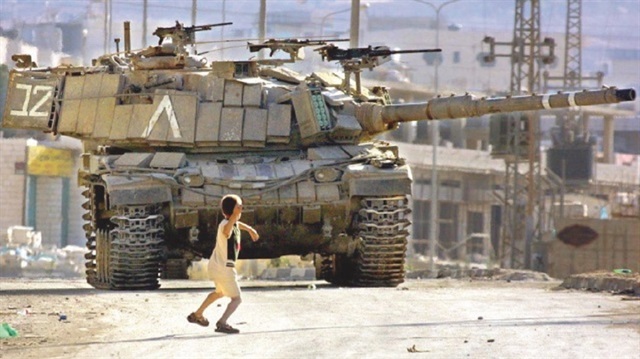
The embargo against Qatar during the 50th anniversary of the Six Day War has greatly benefited Israel, as Tel-Aviv's priority is to end the resistance in Gaza
Israel has gained significantly from the Qatar crisis by deepening the separation between Arab countries, diverting attention from the Palestinian issue as it increases persecution of Palestinians and shaking the last points of resistance against its oppression.
For many years, Israel has tried to put organizations such as the Muslim Brotherhood Movement and Hamas, which have a bond with the locals, on a terror list.
When the United Arab Emirates (UAE), Saudi Arabia, Bahrain, and Egypt accused Qatar of “supporting terrorism,” Israel found an opportunity to fulfill its own aims.
Experts have said that as a result of the political and economic blockade of Qatar, Israel is expected to accuse Hamas of being linked to terror and cause the withdrawal of aid for Gaza in an attempt to cause despair and weaken resistance in the Arab world.
The UAE, Saudi Arabia, Bahrain and Egyptian governments jointly signed terror list that mostly includes non-governmental organizations that send aid to Syria and Gaza.
It was stated that the list was prepared by Israel and shared with the countries who signed it.
The Tel-Aviv administration wrote a letter to the United Nations Security Council for Hamas to be considered a terrorist organization. Israeli Prime Minister Binyamin Netanyahu wants the United Nations to close the UN Palestinian Refugee Assistance and Work Organization (UNRWA) in an attempt to benefit from the crisis.
The crisis that took place in the Gulf during the 50th anniversary of the Six Day War, which opened the way for Israel to occupy East Jerusalem, the whole of the West Bank and the Golan heights, was a second blow.
The last crisis between Qatar and some Arab countries began on June 5, just like the Six Day War in 1967.
Fifty years ago, the countries that were defeated by Israel and dragged into great suffering, this time joined forces with Israel and burdened Qatar.
Israeli Defense Minister Avigdor Lieberman described the diplomatic row as "a great opportunity" for Israel on the first day of the crisis. Lieberman argued that the countries that imposed the blockade on Qatar were in the same position as Israel in the fight against "extreme Islamist terrorism".
Experts believe that Israel's quick adaptation is because it hold a similar vision for the region to the countries involved in the spat.
UAE University Faculty of Economics Professor Dr. Yusuf Caliph al-Yusuf said that in the current crisis, all countries of the Gulf Cooperation Council (GCC) will have losses.
"In the current crisis, all of the GCC countries will lose. But Saudi Arabia will lose the most," Yusuf said on Twitter.
Qatar Foreign Minister Sheikh Mohammad bin Abdurrahman Al Sani warned that the current crisis will cause the GCC to be questioned.
Israeli occupation forces closed the Al-Aqsa Mosque’s entrance and exit on the grounds that a few Palestinians allegedly threw a rock at a group of approximately 60 extremist Israelis who were touring the mosque.

Musa Abu Merzuk, a member of the Hamas political office, issued a warning to the Arab countries regarding the recent crisis.
"No one should have differences on the Palestinian issue," he said.
Merzuk stressed that Hamas will continue to struggle for "the Jerusalem issue and the unity of the Palestinian people", emphasizing that the latest tension is the internal affairs of the Arab countries.








